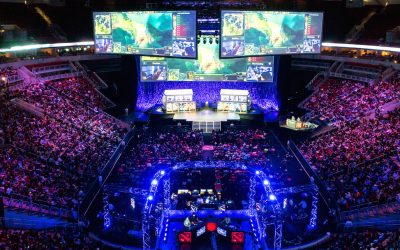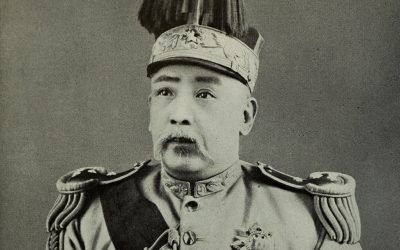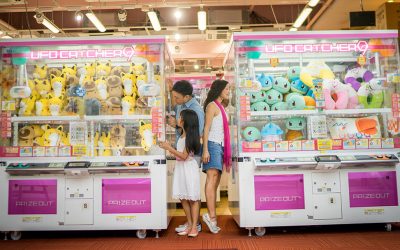Top 10: Cartoons from Asia
No childhood is complete without hours spent watching cartoons (especially in the 80s)! Here, in my opinion, are the top 10 cartoon / anime characters from Asia! If you are looking to experience Anime culture live, check out animefestival.asia.
10. LoFuZi (Old Master Q)
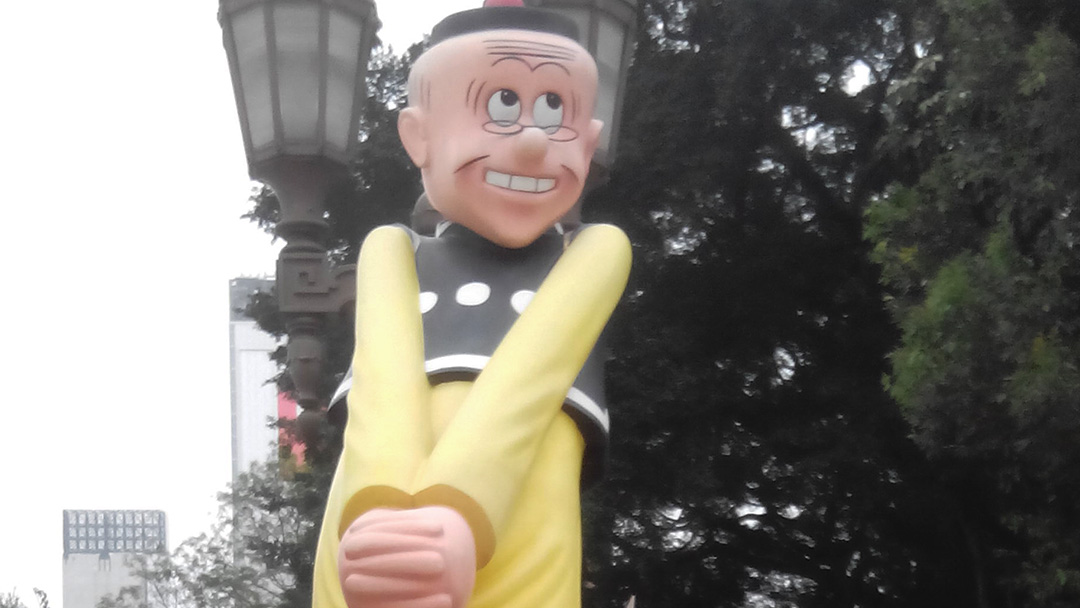
LoFuZi, translated to Old Master Q is one of my father’s favorite comic characters. I can still find LoFuZi comic books around my parents’ house today. Each story in a LoFuZi comic strip usually only has 4-6 illustrations and involves Old Master Q and/or his friends – the short and stubby Big Potato, and the tall, lanky Mr. Chin. The comics depict Hong Kong life in the 50’s and 60’s, which was very different compared with today. Back then, the city was still under British rule and many escaped to Hong Kong from China after the Communist victory in 1949. Large influx of refugees escaped from Mainland China with barely anything, and found homes in squatter camps throughout the territory. At the same time, many foreign firms uprooted their offices from Shanghai to Hong Kong, and the city came together in an odd mixture of old China and colonial modernity. The LuFuZi comic series was a satire of traditional society trying to modernize, and catch up to the new times.
Photo by 倪少寅 – Own work, CC BY-SA 4.0, Link
9. Nezha (哪吒)
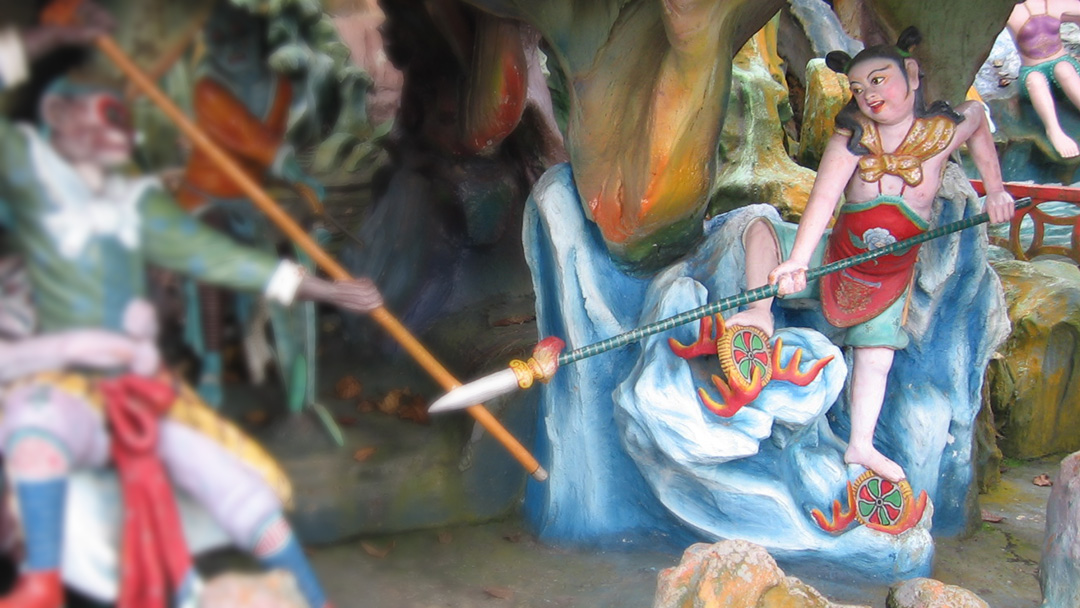
Prince Nezha’s Triumph Against Dragon King 哪吒闹海 is a Chinese animated film created in 1979, and screened at the 1980 Cannes Film Festival. The animation is based on the character Nezha, a protective deity in Chinese folk religion who interestingly also played a role in Journey to the West, fighting against Sun Wukong. While everyone knows of Nezha in China, the animated film really brought him to life so to speak.
Nezha’s origins are said to be based in Hindu mythology. However, his name is also seen in Buddhist sutras in China; and in Japan he is celebrated as a divine being in Taoism. The popularity of Nezha is less animation and more superstition. He is often depicted flying around in his wind fire wheels, making him the go-to God for professional drivers. According to Wikipedia, he is also known as the patron of gamblers, playful and mischievous in “blessing” gamesters with a good hand of cards.
Photo by User:Sengkang – Own work, Copyrighted free use, Link
8. Atomu

Tetsuwan Atomu (Mighty Atom), or Astro Boy as he is known in the West, is about a robot A.I. that lives among humans in the near future. The manga series turned animation created by Osamu Tezuka was first published in 1952. Atomu or Astro boy is a super hero that fights crime and injustice using his super powers. He has jet powered flight, 100k horsepower strength, superhuman hearing abilities and is capable of determining instantly if someone is good or evil.
The original comics depict a future where robotic technology has become so advanced that mankind must begin to recognize them as another species. Amazing, considering the manga was first published in the 50’s. Osamu Tezuka’s English Website describes Atomu’s existence in a future where “the robots (and the humans who support them) often face a fierce political and social struggle to secure robot rights against humans who, fearful of change, often offer violent resistance. However, possessing the world’s most sophisticated and human-like computer brain, Astro boy serves as a bridge between humans and robots, fighting to defend both races and establish peace and friendship between them.”
Photo by Yunaru123 – Own work, CC BY-SA 4.0, Link
7. Totoro
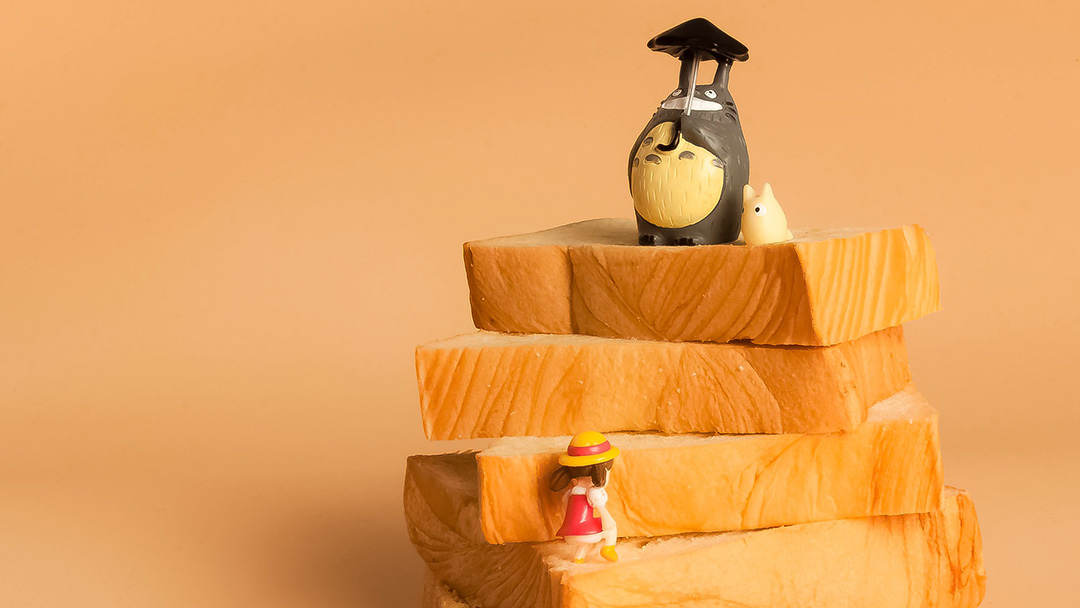
My Neighbor Totoro is a Japanese animated film written and directed by the famous Hayao Miyazaki, produced by Studio Ghibli in 1988. This film has a cult following across Asia. Totoro is gigantic, furry, cat-like spiritual creature that lives in the forest. The story takes place in rural Japan, and is about family, childhood, nature, and enchanted creatures that dwell in the forests.
Miyazaki has a very special way of communicating the innocence and complexity of childhood emotion like no other. His animated masterpieces never disappoint. If you have not seen this film yet, you’re really missing out.
6. Dragon Ball
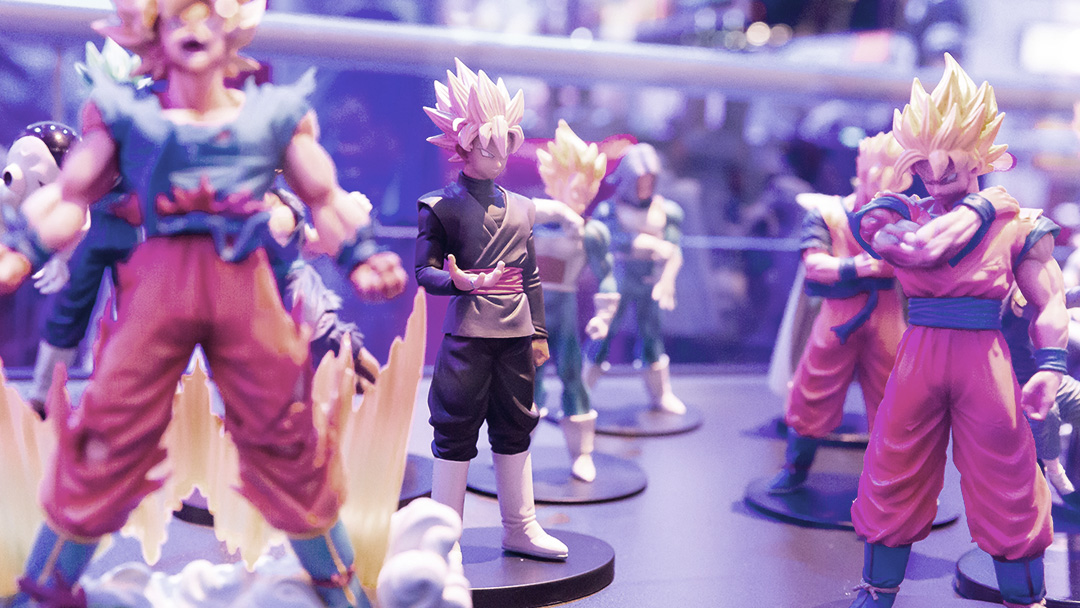
If Sailor Moon epitomized the Shojo culture in Japan, Dragon ball played a defining role in the consciousness of the modern day Shonen – young, teenage Japanese boys. The Dragon ball franchise created between 1984 and 1995 by Akira Toriyama was inspired by the Chinese classic “Journey to the West”. The main plot centers around Goku and his friends going on adventures to seek out seven mystical orbs, also known as dragon balls.
The Shonen manga genre is often jam packed with high action and humor. Similar to Goku, the main characters are usually strong, righteous, loyal and often sacrificing themselves for the greater good of their family or friends.
Photo by Marco Verch – Dragonball Fighter Z action figures – Gamescom 2017, Cologne, CC BY 2.0, Link
5. Sailor Moon
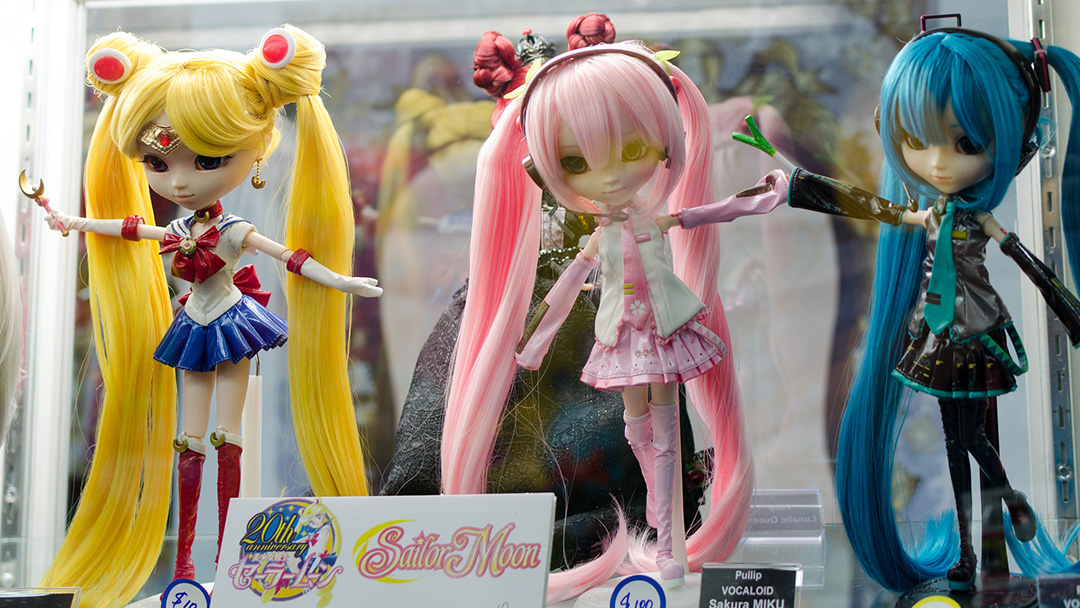
Sailor Moon or 美少女戦士セーラームーン (Beautiful Girl Soldiers Sailor Moon) originated as a manga and anime series written for ‘Shojo’ (Japanese young girls) in the early 90’s. It’s mainly about a schoolgirl named Usagi Tsukino, who leads a group of beautiful Shojo Sailor Soldiers to fight evil and protect the universe from destruction. At the height of its popularity, the main character Sailor Moon was touted as one of the most important and popular female superheroes of all time.
Sailor Moon and her shojo comrades have become instant pop-cultural icons that are as empowering to young girls as they are sexualized. The rise of the Japanese big-eyed, miniskirt wearing Shojo and its impact on Asian culture is complex and fascinating. They are the heart and soul of Japan’s Kawaii culture. To understand more about the Shojo, I recommend reading Laura Abbott’s dissertation “Shojo: The Power of Girlhood in 20th Cntury Japan”. She writes:
“that the 1960s women’s liberation (ūman ribu) movement allowed for the liberation and legitimization of shōjo culture as a uniquely Japanese means of expression, and second, that shōjo culture was then integral in fueling Japan’s economy through the late 20th century, establishing Japan as a major soft power for years to come.”
Internationally, the popularity of Sailor Moon coincided with the growing use of Internet as a new medium for communication between anime fans. According to Wikipedia, in 2004 there were more than 3.3 million websites about Sailor Moon, compared to 491,000 for Mickey Mouse.
Photo by Flickr.asia Ben Loomis, CC By 2.0
4. Monkey King – Sun Wukong 孙悟空
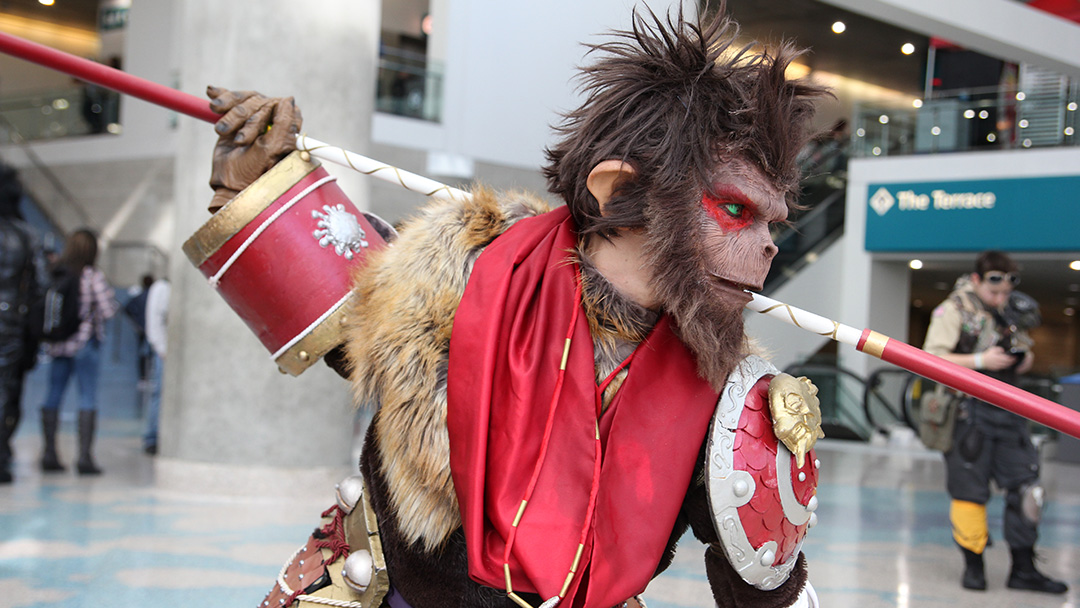
The Monkey King, Sun Wukong is a character from Journey to the West 西游记, a novel published in 16th century Ming Dynasty China. It is considered one of four great classical novels of Chinese literature. The story depicts the journey and trials of a Tang Dynasty Buddhist Monk, Xuanzang, who travels to Central Asia and India to obtain sacred Buddhist sutras. Sun Wukong, a powerful god-like monkey, was one of four of Xuanzang’s faithful disciples. Some scholars believe Sun Wukong’s character was inspired by Hanuman, the Monkey Deity in Hinduism, who led an army of monkeys to fight the demon King Ravana.
The Sun Wukong character was further adapted into many other stories, legends and even modern day comics and animations. In fact, the popular Japanese comic, Dragon Ball, took inspiration from this 400 year old novel. It’s main protagonist, Son Goku, was inspired by Sun Wukong. I’m always surprised by the reach of the Monkey King, he is known all across Asia, and even my German born husband knows of the story of the Monkey King!
Photo by William Tung from USA – Wondercon 2016 – Monkey King Cosplay, CC BY-SA 2.0, Link
3. Pikachu
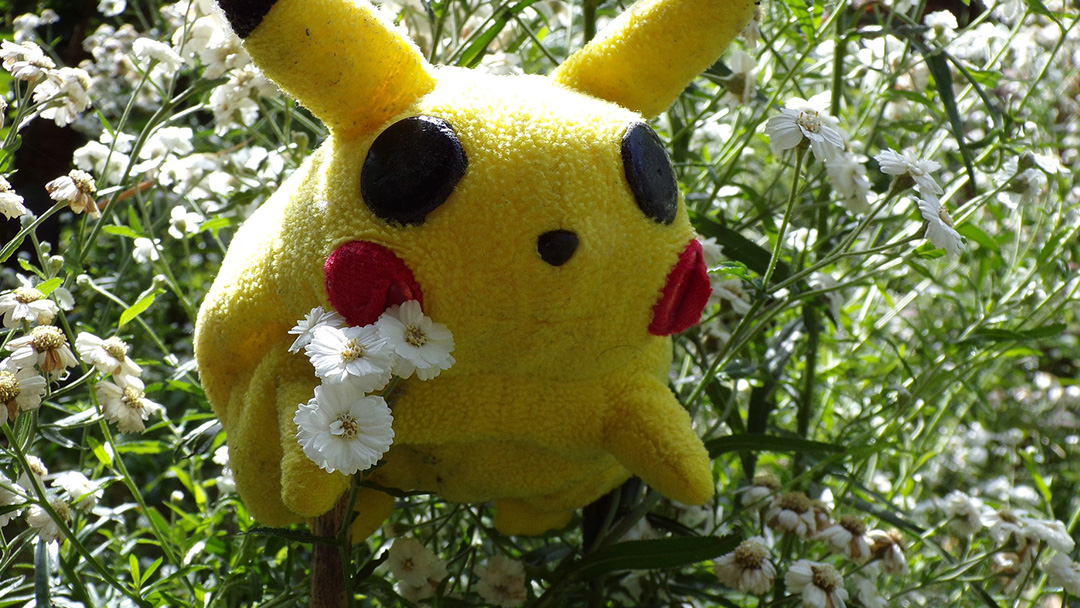
Pikachu was created in 1996 by Nintendo, one of the world’s biggest video game makers. Pikachu and the Pokemon franchise were also not something I grew up watching. But of course, everyone recognizes the famous yellow, round, mouse-like creature with a lightning rod tail. He is the face of a 57 billion revenue empire, a bona fide pop culture icon celebrated worldwide! Did you know that there is even a Pokémon World Championships? In 2016, players from more than 35 countries gathered in San Francisco to compete for the Pokemon World Champion title, and a prize pool worth half a million dollars.
2. Hello Kitty
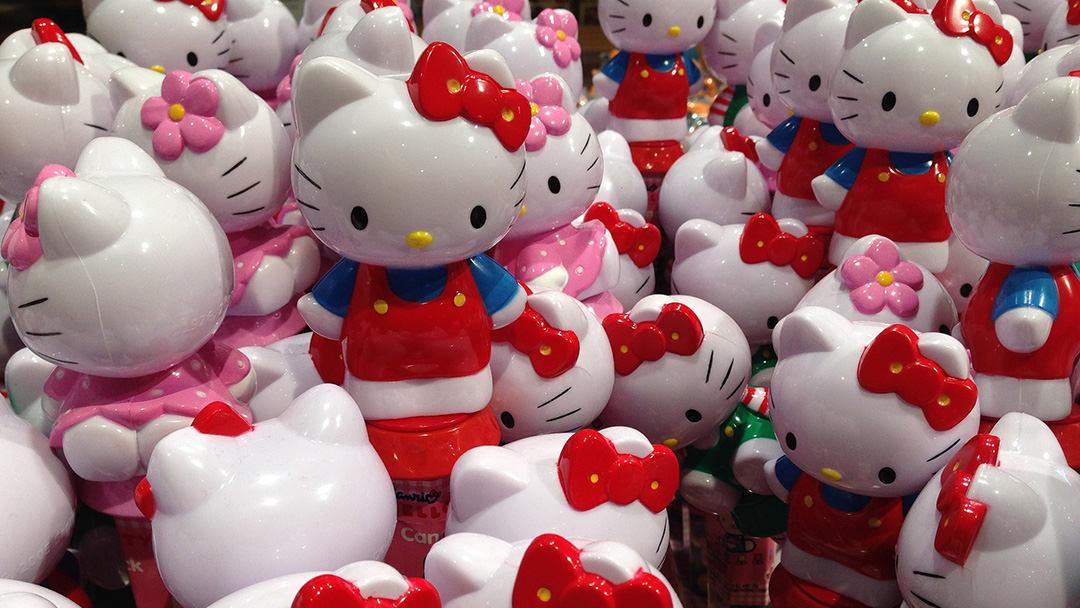
Hello kitty is one of my all time favorite characters. She was everything I loved about Japan when I was a teenager, the sum of all things Kawaii~ ! My fascination with Kitty-chan, as she is lovingly called in Japan, started when I stumbled upon the “cult of cute” during a family visit to Tokyo when I was 16. Almost immediately I assimilated all things Kawaii~, eating, buying and gushing over everything Hello Kitty and pink. Today I continue to buy Kitty-chan merchandise for my children. Hard to believe Hello Kitty has been in the market for 40 + years. Her popularity continues to soar across Asia and the world. This feline mogul is responsible for more than $750 million in annual revenue.
1. Doraemon
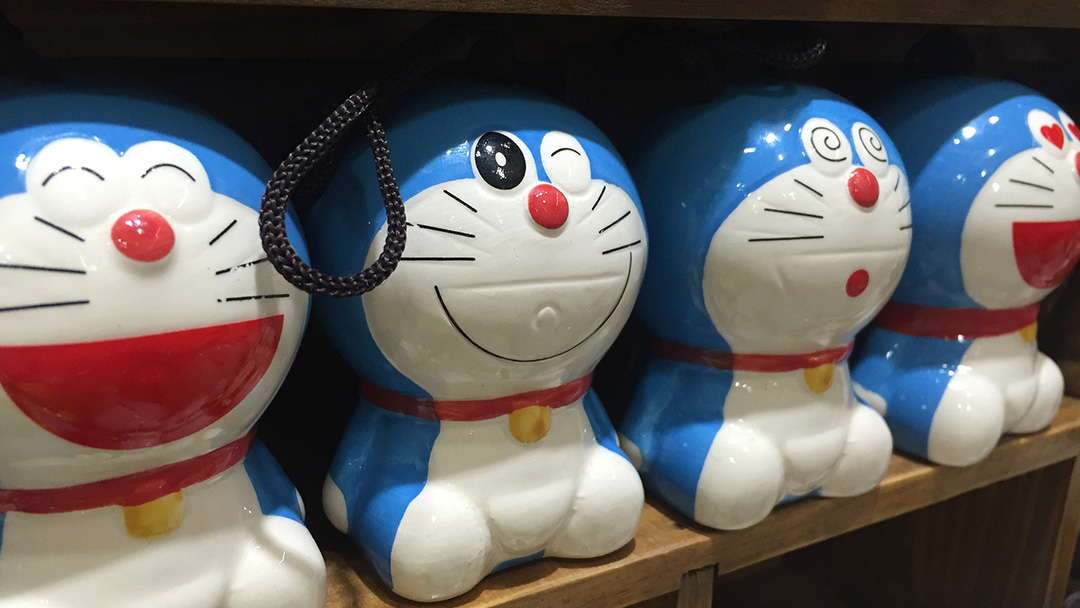
Doraemon was probably my favorite Asian cartoon character growing up. At the time, his name was translated to “Ding Dong”, the Cantonese onomatopoeia for a bell’s sound that referred to his cat collar. It wasn’t until years later I discovered his “real” name in Japanese is Doraemon, and that he is in fact a blue robot cat from the future sent back in time to help a young boy named Nobita, the inventor’s younger self. My favorite thing about Doraemon was his fourth-dimensional pocket at his belly that he would reach into every episode to pull out some super gadget from the future. My friends and I used to have lengthy discussions about which gadgets were our favorites… I always wanted the ‘Dokodemo door’ that opened to anywhere and everywhere. Of course, there was always the time machine or the ‘takekoputa’ flying device…
Unfortunately, not every situation can be fixed with a gadget, recently the Doraemon franchise came under intense criticism in Pakistan and India where the cartoon has been broadcasted since 2005. Opposing activists and local politicians argue the show has a negative influence on children, as it teaches young kids to depend on others to solve their problems rather than working them out on their own.
Top 10: .Asia domains
Over the years there have been numerous exciting .Asia domains set up. One of the earliest examples was Johnny Walker’s KeepWalking.Asia as part of an Asia wide TV and online campaign in 2008. Even though the domain is no longer operational, it inspired our continued tracking of live .Asia websites through the KeepClicking.Asia initiative, now integrated with our main site and social media page: http://www.facebook.asia/dot.asia.
Here are my Top 10 picks (at the moment… as it certainly changes all the time) of high traffic .Asia domains that exemplify or showcase how .Asia domains can be used.
Top 10: eSports teams
Claiming the World Championship titles in 2013, 2015, 2016 and now among favourites for 2017, SKT is all too obvious as the choice for top spot. While they suffered from a slump in 2014, SKT’s star player Faker, argued by some to be the most dominant player of all time has stayed with the team throughout his dazzling career. SKT have already forged a lasting legend for themselves; winning this season’s championship would only push it to the next level.
Top 10: Modern history’s Asian political giants
Asia is the largest and most populous continent. Throughout Asian history, there have been several political figures who have been extremely influential in shaping the region. How could I miss this opportunity to list some of the most notable and influential Asian figures in recent history? This is my list of “Asian Political Giants of Modern History”.
Top 10: Asian movies
As a movie lover, it’s always hard to pick the top 10. Frankly speaking, if there is no year limitation (2017), I would definitely have a wider selection.
A movie is not just a form of entertainment, it can also inspire people and even influence an individual’s way of thinking. So here is my top 10 without any specific ranking orders:
Top 10: Business trip destinations around Asia
Having been with .Asia for the best part of 10 years now, I have had the honor of traveling around the region, building relationships and increasing the awareness of the domain extension. Here are my top 10 places I have visited in the region.
Top 10: Asian superstitions
Like many other Asians, I grew up in a traditional household and my elders – from my grandmother to my mom (to think of it, maybe it was just the women) are highly superstitious. They told me the craziest things! I didn’t want to believe in them, but I wasn’t going to take any chances so I followed those rules. To this day, even though I still don’t believe in those superstitions, I catch myself passing them onto my own daughter. At the very least, they ARE an excellent way to get her to follow rules.
Top 10: Superfoods
I started falling in love with concept of “food as medicine” since my childhood when I was inspired by “The Huangdi Neijing” (a.k.a The Yellow Emperor’s Classic of Medicine 黃帝內經). Later when I started exploring more from the school library, I found that the Greek physician Hippocrates, known as the Father of Early Medicine (ca. 460 BC – ca. 370 BC) had suggested the same concept around the same period of time. He stated “Let food be thy medicine and medicine be thy food.” This has become my creed of life as eating right is really important! Here are my top 10 choices for super foods.
Top 10: Exotic foods in Asia
While I claim myself as an adventurous foodie, I have to firstly put out a disclaimer that these 10 exotic foods may be only baby level for some while daring for others – especially westerners. This is just a snapshot of my personal top 10 for exotic Asian foods (that I’ve tried). My list will begin with #10 for least adventurous to #1 for most daring dishes. So here we go…
Top 10: Asian athletes
I have always wanted to be an athlete since a very young age, but growing up in a traditional Chinese family, school always came first and there was only just enough room to do sports recreationally. It always makes me proud to see how Asian athletes are making a name for themselves in their respective sports. They have the powerful ability to inspire many more kids, including other Asians to start young. Here are my top 10 Asian athletes of all time that I think have been very influentia
Top 10: Asian musicians
In the face of declining global music sales in recent years, the music industry in Asia, particularly that of China, South Korea and Japan, is a rapidly growing economic sector; home to some of the world’s largest music markets. I have shortlisted my top 10 most influential and outstanding Asian musicians as follows:
Top 10: Kid-friendly family vacation destinations
June is an avid traveler who immerses herself into the local culture wherever she goes. In this list she will take us through her top 10 kid-friendly vacation spots in Asia.

No Results Found
The page you requested could not be found. Try refining your search, or use the navigation above to locate the post.

